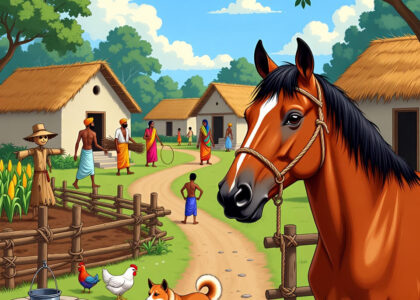Meaning
This proverb means that responding to violence or aggression with similar behavior only creates more conflict. Violence never resolves issues; it often escalates problems and perpetuates a cycle of harm. Peaceful solutions, dialogue, and understanding break this cycle.
Understanding the Idea
Responding to anger or aggression with retaliation rarely leads to resolution. Conflict can escalate into long-term harm for individuals, communities, and societies. Understanding, patience, and non-violent actions create lasting solutions.
A Beautiful and Relatable Moral Story
In a small town, two neighboring families, the Sharmas and the Mehtas, lived next to each other. A minor dispute over water usage escalated into arguments and eventually, one day, physical fights broke out. The children, influenced by the parents’ aggression, also began quarreling.
A wise elder, Mrs. Kapoor, intervened and asked both families to sit and talk peacefully. She explained, “Violence begets violence. Fighting will only create more hatred. Seek understanding, not revenge.” Reluctantly, both families agreed to mediation. They shared grievances, apologized for past actions, and agreed on fair usage of the water supply.
Over time, the two families became friends. Their children learned to resolve disagreements through dialogue rather than aggression. The community observed that peace created harmony, whereas violence only spread animosity. The lesson was clear: retaliation brings no solution, but understanding and compromise foster lasting relationships.
Moral
Responding to aggression with aggression only escalates conflict; peace and understanding are the true solutions.










